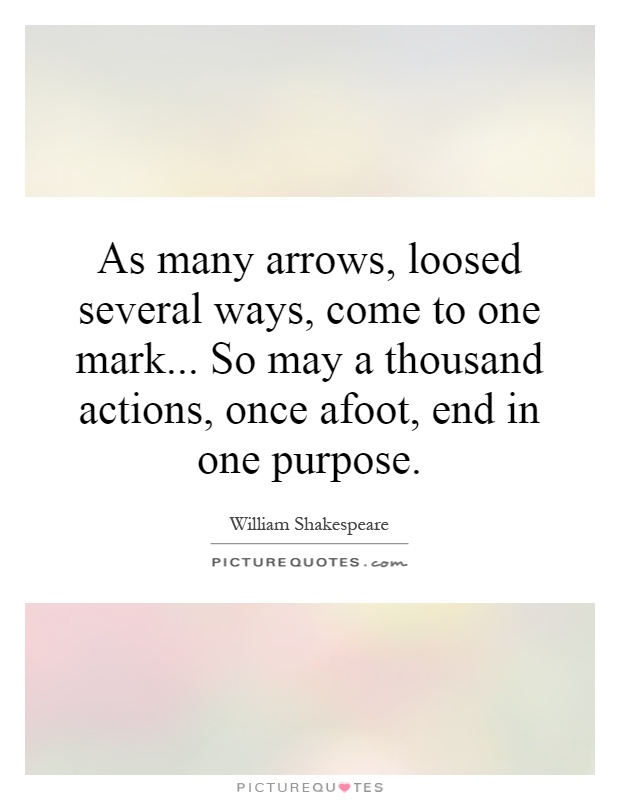As many arrows, loosed several ways, come to one mark... So may a thousand actions, once afoot, end in one purpose

As many arrows, loosed several ways, come to one mark... So may a thousand actions, once afoot, end in one purpose
William Shakespeare, often regarded as one of the greatest playwrights in history, had a profound understanding of human nature and the complexities of life. In his works, he often explored the idea that seemingly disparate actions and events can ultimately lead to a single outcome or purpose. This concept is beautifully encapsulated in the quote, “As many arrows, loosed several ways, come to one mark... So may a thousand actions, once afoot, end in one purpose.”Shakespeare’s plays are filled with characters whose lives are intertwined in ways they may not even realize. The actions of one character can have far-reaching consequences that impact the lives of others in unexpected ways. In “Romeo and Juliet,” for example, the tragic deaths of the young lovers are the result of a series of misunderstandings, miscommunications, and impulsive decisions made by various characters. Each action, no matter how small or seemingly insignificant, ultimately leads to the same tragic conclusion.
Similarly, in “Macbeth,” the title character’s ambition and desire for power set off a chain of events that culminate in his downfall. The witches’ prophecies, Lady Macbeth’s manipulation, and Macbeth’s own choices all play a role in his ultimate demise. Each action taken by the characters, whether intentional or unintentional, contributes to the inevitable outcome.
Shakespeare’s exploration of the interconnectedness of human actions and their consequences serves as a powerful reminder of the complexity of life. Just as many arrows, shot from different directions, can converge on a single target, so too can a multitude of actions lead to a single purpose. This idea underscores the importance of mindfulness and consideration in our actions, as even the smallest decisions can have far-reaching effects.












 Friendship Quotes
Friendship Quotes Love Quotes
Love Quotes Life Quotes
Life Quotes Funny Quotes
Funny Quotes Motivational Quotes
Motivational Quotes Inspirational Quotes
Inspirational Quotes